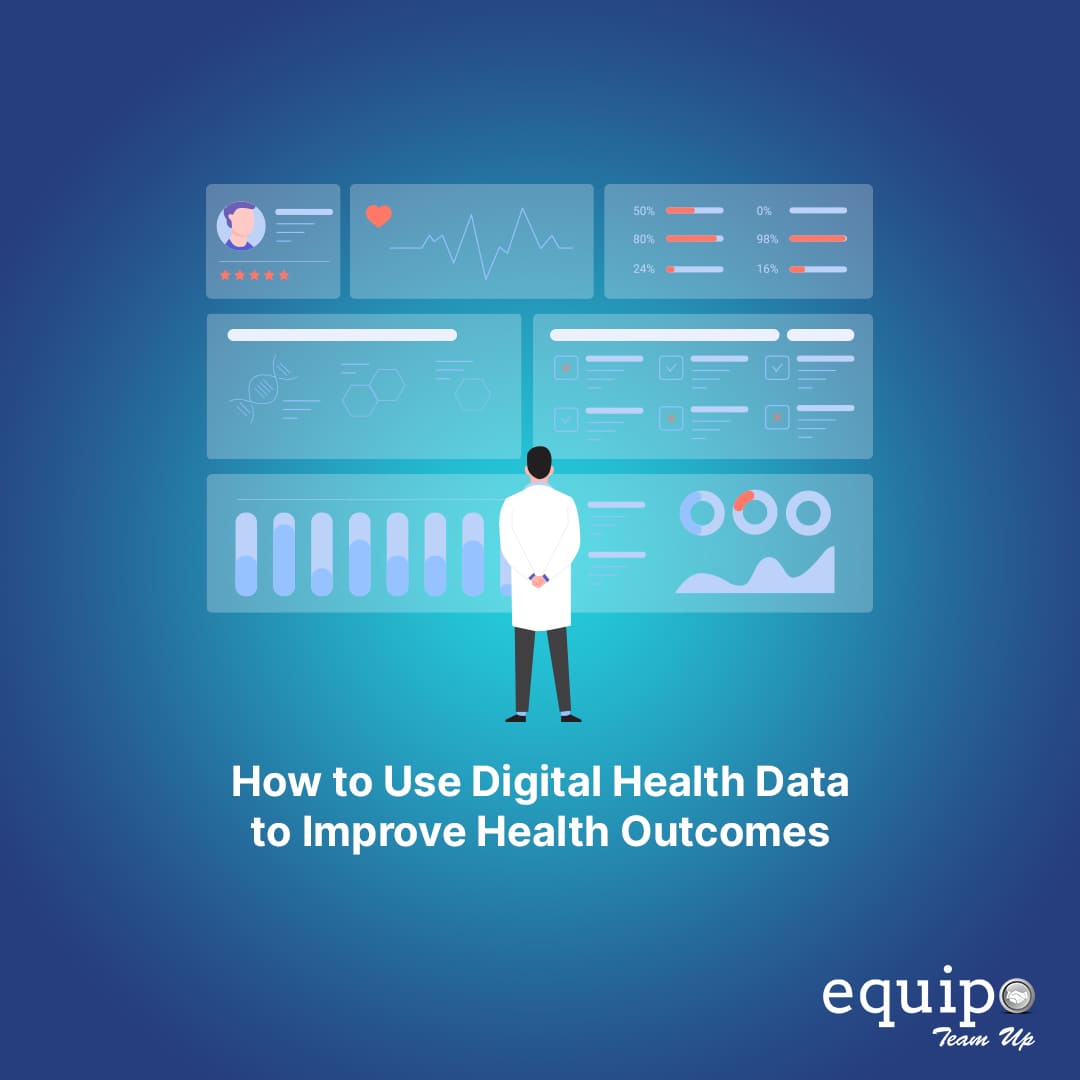Studies show that an average US citizen spends more on health care compared to any other country. Herein, one way to improve healthcare quality is by expanding digital data and incorporating telehealth to improve the outcome. Utilizing digital health data will provide detailed insight into patient health, address various factors of disruptions, and achieve enhanced health outcomes.
This article covers the importance of digital health data and how to employ the tools for improving patient health.
Measuring The Quality of Health Care
Healthcare is widely measured based on three questions:
1. What are the measures taken to manage health and health care?
2. Is the output as per the requirement?
3. If not, what is required to be changed?
Data is collected through different mediums that allow providers to access the patients’ current health conditions based on manual inferences. In addition, Digital data collected from mediums like wearable devices, electronic records, etc., assist providers in measuring healthcare quality.
How can we effectively manage data and digital health?
Digital data will play a crucial role in helping healthcare providers and doctors understand the patient’s current condition. In addition, it will assist them in implementing innovative ways to better health care and provide quality care. Below are the top three ways to ensure effective digital transformation in healthcare and data management.
1. Faster Data Collection by Reducing the Cost
Digital health companies collect data through wearable devices and electronic records to generate information. On the other hand, traditional data collection methods use data acquired through insurance claims, care providers, etc., which lags relevance. The data gathered through digital devices are cheaper, timely, and not separated from health care. In addition, it allows immediate analysis and result outcomes.
2. Leveraging the Broad Adoption of Digital Health Data
Digital health data are rapidly growing. It has proven to be an eminent tool for monitoring patient conditions and providing real-time assistance. These include sending reminders, notifications, alerts, checking inconsistencies, and guidelines to manage chronic illnesses.
Provisions like electronic health records, PROMS (Patient Reported Outcome Measures), and wearable devices help measure quality health care by incorporating artificial intelligence. It also bridges the gap between healthcare providers and patients, ensuring no lapse in patient care.
3. Using Software Tools for Managing, Tracking, and Analyzing Health Data
Developing digital health measures is a continuous process that can be achieved by encompassing all the relevant aspects. Software tools are designed in a manner that helps in managing, tracking, and analyzing patient conditions regularly. For example, patients can measure their blood pressure level and track its range using relevant tools.
It negates the need to manually enter data into electronic health records prone to human error. Care Delivery Software tools allow replacing the tedious paper-based data collection with software to further add them into the clinical systems.
Furthermore, it automates the process of extracting data from EHRs, thereby improving the overall accuracy of data collection.
How can we achieve our desired digital health outcomes?
Incorporating digital measures into healthcare poses many benefits. It enables providers to assess the data effectively, thereby incorporating measures to improve performance. From alerting patients due for screening to managing patients with chronic illnesses, digital health systems offer a data-driven platform designed to provide a better healthcare service.
Protection of Health Data and Cyber Security
Data protection and privacy are essential aspects of the healthcare industry. Healthcare providers must maintain a balance between protecting patient data and meeting the required regulatory norms set by the authorities like HIPAA. The organizations herein take a proactive approach to lower the risk of data breaches. Some of the ways utilized include:
- Encrypting Data: All data is end-to-end encrypted, eliminating the chance of being misused by any third party.
- Data Backup: Backing data in cloud systems ensures no loss of important information.
- Periodic risk assessments: Occasional assessment of risks and loopholes to ensure complete security of data.
How Advanced Care Delivery Platforms Process Data for Population Health Management?
Healthcare organizations possess an unprecedented amount of data that can help providers offer advanced care delivery by closely monitoring the parameters. These are derived from various sources, which include:
- Claims
These are structured data that are easy to access. It includes a wide range of information related to diagnostic codes, patient demography, and the billable amount levied for each visit.
- EHR
These include information about patient concerns shared during each visit in addition to the feedback received. It broadly covers vital statistics, lab reports, imaging, and current medications.
- Medication Adherence
Non-adherence to taking medications on time can majorly affect population health. The data is predicted by gathering information collected from EHRs, claims and e-prescribing databases to check which patients are likely to stop taking medications and assist in avoiding contraindications.
- Patient-Generated Data
These include data gathered through various sources such as surveys and stats acquired through IoT sensors like wearable devices and digital health devices. It collects data related to patient sleep patterns, heart rate, exercise, steps covered, and much more.
Advanced healthcare mediums allow providers to gain access to large amounts of data. It includes demographic data related to measuring the level of healthcare quality and wellness of the community. Equipo Population health employs advanced analytic tools to analyze data stored from different sources in a protected and secure environment. The data collected helps enhance advanced care delivery and increase operations’ overall efficiency.
Equipo’s Population Health Management integrates all areas of patient health care by defining it into segments. The digital transformation of healthcare helps to bifurcate the population into multiple dimensions, such as medications, risks, chronic conditions, hospitalizations, recent surgeries, hospital visits, specialists, medications, and much more.
Register today here and join us in the journey of providing quality healthcare.

